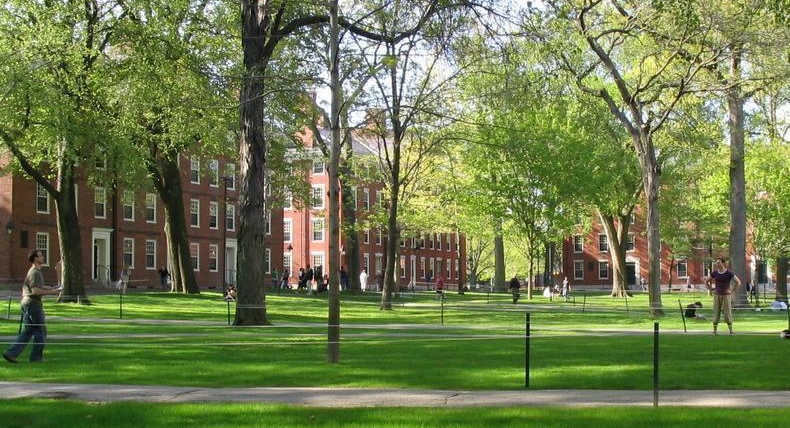
On June 11, 1900, someone in Harvard Yard called out “Oh, R-i-i-i-n-e-HART!” There must have been something in the air, because hundreds of students repeated the cry, and for the next 40 years it took on a strange life of its own. Journalist (and alumnus) George Frazier mentioned it in his 1932 song “Harvard Blues,” recorded in 1941 by Count Basie. John Barrymore mentioned it in his 1939 film The Great Man Votes. Thomas Pynchon describes it in his novel Against the Day. Today it’s documented in slang dictionaries and has entered the realm of legend: A Harvard man menaced by Arabs in Africa supposedly cried “Rinehart!” and was rescued by a fellow alumnus from the nearby French Foreign Legion.
The truth is more prosaic. Rinehart is John Bryce Gordon Rinehart, class of 1900. A contemporary article in the Harvard Crimson explained:
Rinehart, who is an earnest student, has been in great demand as a tutor to other men in his courses. As he lives at the top of Grays hall his friends have sought to find out whether he was in or not by directing plaintive cries of ‘Rinehart, O Rinehart’ at his windows. This made the studiously inclined who swell in the neighboring dormitories very tired and they determined to quell Rinehart, so promptly at dark for the past three nights the college yard has resounded with the cries of ‘Rinehart, O Rinehart.’ First one end of the yard and then other would send up the plaintive cry, and then all the buildings would swell as if in chorus with the same old plaint. Last night the college police tried to stop the racket, but the boys by a little teamwork kept them running from one dormitory to the other. One man with a megaphone was particularly offensive, but despite the police vigil of three hours the megaphonist was still summoning Rinehart in tearful tones.
Rinehart himself, “stocky, gray, and genial” at 61, finally confirmed this at the university’s tercentenary celebration in 1936, his first time back to campus:
It was in the Spring of 1900. Examinations were over and the atmosphere was tense, as it usually is between examinations and commencement.
My classmates always looked upon me as a grind. They were continually calling for me to go out on a spree, but I have never touched a drop in my life.
That Spring evening, in 1900, they came and called up to my room — I was living in Gray’s 49, on the top floor — for me to join them. The late Frank Simonds, living in Matthews, who was a friend of mine, heard the call and just for a joke stuck his head out of his window and repeated the call.
The cry was taken up. Among those who joined in were John Price Jones and Charles Underwood, who is director of the Manly School here in Cambridge. Within a few minutes the yard was a bedlam.
Why it caught on, though, still seems to be a mystery.
